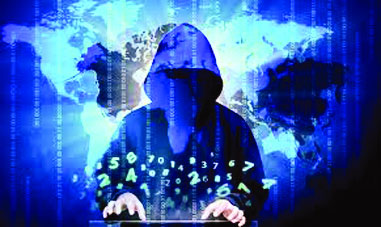Conventional warfare isn’t going anywhere but it doesn’t take a genius to realise that future wars will be waged by hackers
Reports have emerged that the Indian armed forces will undertake a major cyber security exercise this week and this might be the first step in creating a much-needed and unified cyber command. As the terrorist attacks in Pulwama and our retaliatory strikes inside Pakistan have shown us in the past few months, both conventional and unconventional military warfare are not going away anytime soon. But to not realise the potential and pitfalls of cyber attacks on the offensive and defensive fronts would be a huge mistake. One could argue that India’s delay in getting into this arena alongside China, Russia and the United States has already put it on the back foot. The fact is that cyber battles can cripple a nation even before a war. They can bring down mobile and fibre-optic networks, make it impossible for airlines to fly, conduct any financial transactions and even bleed banks. They could potentially stop electricity and water supplies and disable fuel pumps. A well-executed cyber attack could have a nation, even one as large and diverse as India, reeling. The Air India servers crashed last week, stranding thousands of passengers while the immigration system in Delhi collapsed leading to huge queues. And while we should presume neither of these system failures was mala fide, one can imagine what could happen if a concerted effort was made to cripple our systems. The fact is that India should be prepared for heavy cyber onslaughts from enemy nations and given the anonymous nature of such operations, they can take place in the guise of an undeclared war. Often such attacks and their counters take place at the same time.
It is not just civilian and civic systems that could be under cyber threat, data porosity can be used to specifically target commercially important private enterprises in India as well. Targetting such corporations can destroy wealth rapidly and mount an economic warfare that could be far more ravaging and destructive. There could be a disastrous consequence on the stock market indices. Most large companies and financial institutions have teams of cyber-security experts and invest in R&D. The Indian armed forces must work with them and synergise a vigil network. India should also leverage its information technology expertise to attract and retain talent in this space as well as work more closely with friendly nations such as Australia, Israel and the United States. One hopes that these exercises are just the first step in the eventual establishment of a comprehensive cyber threat protection module.


























